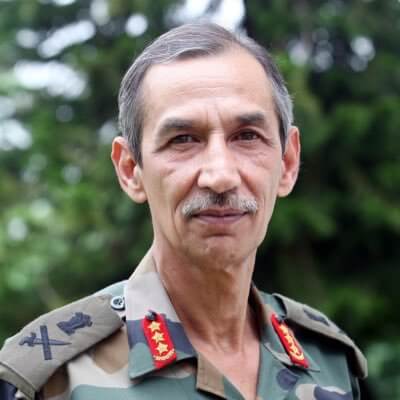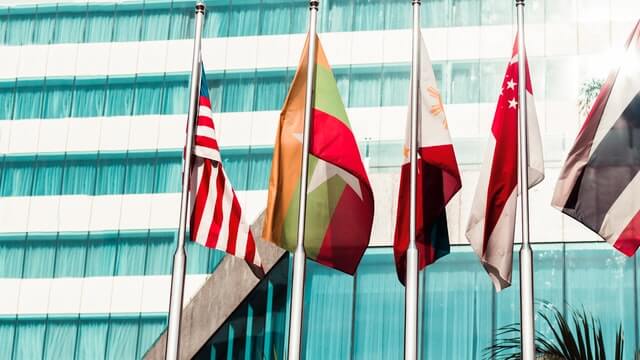This Blog is written by Sahina Mallick. Edited by Uroosa Naireen. | Winner of 1st Online National Blog Writing Competition |
Due to the ongoing coronavirus pandemic, Governments across the world have accepted ‘Lockdown’ measures to curtail the spread of this deadly virus. After various deliberations, meetings, and guidelines rooted by W.H.O., the Governments have voted for breaking the chain of the deadly virus by accepting the procedure of lockdown for different durations respectively.
This Blog is written by Ishika Khurana from Vivekanand Institute of Professional Studies, IP University. Edited by Ravikiran Shukre.
A Defense Testing Infrastructure Scheme (DTIS) has been approved by the Defense Minister Rajnath Singh on 15 May 2020. The primary objective behind launching this scheme is to boost up the Government Defense Manufacturing base and Aerospace sector.
This Blog is written by Nisha Patnaik from KIIT School of Law, Odisha. Edited by Ravikiran Shukre.
The Indian military has been held in high respect over the world for their sheer coarseness and assurance. The one perceptible thing in the entirety of India’s outfitted clashes has been the individualistic methodology of each power.
This Blog is written by Vidur Thanawala from Bennett University, Greater Noida. Edited by Ravikiran Shukre.
The recent purchase of the Rafale combat flights by the Indian Government ran into a controversy when a PIL was filed before the Hon’ble Supreme Court of India, the PIL was filed on the grounds that the government, allegedly has tried to suppress sensitive information regarding the purchase of the flights and was trying to cover up a scandal that was worth crores.
This Blog is written by Ramae Krisshna Reddy from Symbiosis Law School, Noida. Edited by Yash Jain.
Recently, India is facing a very challenging strategic environment, with its neighboring countries possessing significant capabilities and tactics. Protecting a nation from national security has been becoming an arduous task for a government in recent times.
This Blog is written by Yash Yadav from Alliance University, Bengaluru. Edited by Yash Jain.
This article will revolve around the concept of Insider Trading in India. In light of the prohibition of insider trading all over the world including India, this article will focus on Recent changes in the rules and regulations regarding Insider Trading.
This Blog is written by Vidur Thanawala from Bennett University, Greater Noida. Edited by O.S.S. Sarada Rasagnya & Amrith R.
The unpredictable felling of trees has brought about a decrease of 3.16% in the worldwide woods spread from 1990 to 2015. In spite of the fact that India has seen an addition in the aggregate woodland front of carbon – dioxide 1%, still, there are sure locals in the nation that have looked for a reduction in the forestation spread.
This Blog is written by Abhishek Kishan from Central University of South Bihar, Gaya. Edited by O.S.S.Sarada Rasagnya.
Nobody nowadays can deny the fact that social media plays a potential role in uniting peoples across the globe. It has become the most favorite activity to hang out over social media through texting voice/video calling and whatnot.
This Blog is written by Jay Gajbhiye from National Law University, Odisha. Edited by O.S.S.Sarada Rasagnya.
The Commander of the Iranian Quds Force, General Qasem Soleimani, was assassinated by a drone attack on 3 January 2020 close to the airport of Baghdad. Amid the killing that has exacerbated conflicts in the ever-volatile Middle East, the legitimacy and else of the US attack has become one of the primary issues.
This Blog is written by Jatin Pandey from Kirit P. Mehta School of Law, NMIMS Indore. Edited by O.S.S.Sarada Rasagnya.
The General Agreement on Tariff and Trade (GATT) was signed at the conference in Geneva 1947. It came into force on 1 January 1948. After almost five decades of its existence; The World Trade Organization (WTO) was formed by reorganizing in January 1,995.
This Blog is written by Abhipsa Panda from KIIT School of Law, Odisha. Edited by Harshita Yadav.
India’s reaction to the coronavirus (Covid-19) pandemic has so far been affected dominatingly by three distinct laws – the Epidemic Diseases Act, 1897 (EDA); the Disaster Management Act, 2005 (DMA); and the Indian Penal Code, 1860 (IPC).
This Blog is written by Kumar Shubham from KIIT School of Law, Odisha. Edited by Lisa Coutinho.
The Unlawful Activities (Prevention) Act is an Indian law aimed toward effective prevention of illegal activities associations in India. Its predominant objective is to make powers available for managing and dealing with activities directed against the integrity and sovereignty of India.
This Blog is written by Lisa Coutinho from SVKM’s Pravin Gandhi College of Law, Mumbai. Edited by Harshita Yadav.
The Constitution of India has enshrined the Indian Judiciary with the significant duty of interpreting the laws made by the legislative body of the government by settling disputes and punishing the lawbreakers, adjudicating justice, and identifying and filling in the legislative lacunas by setting out precedents.
This Blog is written by Kaviya Kannan from Kasturba Gandhi Degree College, Osmania University. Edited by Lisa Coutinho.
When the Bodos called for a separate state in the late 1960s, little did they know that this complication was going to last for over 50 years. Previously, their movement for a separate homeland began in the 1930s under the British rule, but it was only in the 1960s that they began to organize themselves.
This Blog is written by Prakhar Agrahari from Lloyd Law College, Greater Noida. Edited by Debargha Mukherjee.
The Hon’ble Supreme Court has held in the case of Extra-Judicial Execution Victim Families Assn. v. Union of India that “the security of the nation is of paramount importance and this involves the security of the States as well”.
This Blog is written by Abhipsa Panda from KIIT School of Law, Odisha. Edited by Lisa Coutinho.
Economic warfare is the utilization of or the danger to utilize financial methods against a nation so as to debilitate its economy, and in this manner lessen its political and military force. Financial fighting additionally incorporates the utilization of monetary resources, intends to propel an enemy to change its arrangements or conduct or sabotage its capacity to direct typical relations with different nations.
This Blog is written by Jatin Pandey from Kirit P. Mehta School of Law, NMIMS Indore. Edited by Harshita Yadav.
India currently has one of the highest growth rates in civil aviation and ranks among the countries with the highest expected growth levels in both civil aviation passengers and freight, considering the economic growth prospects.
This Blog is written by Shelal Lodhi Rajput from Symbiosis Law School, Pune. Edited by Debargha Mukherjee.
The Initial tracing of telecom sectors can be traced way back to the 19th century when the Britishers introduced telegraph services in India. Since that time, the evolution in the field of telecom sector has revolutionized in many ways.
This Blog is written by Jay Gajbhiye from National Law University, Odisha. Edited by Harshita Yadav.
Censorship is a process that controls some components of the information by the entity which does not adhere to the thoughts and knowledge circulated in society. In general, the government controls the flow of many parts of a book, film, or anything that the public can see.
This Blog is written by Manjari Shukla from Symbiosis Law School, Noida. Edited by Lisa Coutinho.
Sexual harassment at workplace or sexual harassment as a whole has been there in society since time immemorial. Thus, we can say that it has become synonymous with our society. But recently the trends have changed.
This Blog is written by Vidur Thanawala from Bennett University, Greater Noida. Edited by Prakriti Dadsena.
The world in the 21st century is considered to be moving more and more towards the globalization, in today’s world everything is accessible on the internet. This is considered to be a bane for the world but one of its aspects is also considered to be boon for the world.
This Blog is written by Nisha Patnaik from KIIT School of Law, Odisha. Edited by Ravikiran Shukre.
It is noted that for a somewhat similar objective, Banking Cash Transaction Tax (BCTT) was introduced by the Finance Act, 2005 whereby a type of direct tax was levied on withdrawal of cash of more than a specified limit from the bank in a day. The said BCTT was withdrawn by the Finance Act, 2008.
This Blog is written by Yash Yadav from Alliance University, Bengaluru. Edited by Ritika Sharma.
All human beings in the world are born free and are equal in dignity in rights but the people which have a condition with a disability all over the world including India experience Human Rights Violation and various discrimination as compared to the normal ones.
This Blog is written by Dhruv Agarwal from Symbiosis Law School, Noida. Edited by Ravikiran Shukre.
Today, digital technologies play a major role in the delivery of health care. The National Digital Health Blueprint (NDHB) offers an approach to developing fundamental components of IT that will enable the health ecosystem to streamline knowledge flows through players in the ecosystem while keeping people, their privacy and data confidentiality at the forefront.
This Blog is written by Romil Shrivastava from Symbiosis Law School, Noida. Edited by Maulika Awasthi.
For any institution to function properly constant changes are required to keep up with the dynamic atmosphere. These changes can be found at the grassroot level as well as in mammoth decisions and policies. For example, a software update on your smartphone is a regular feature that fixes the bugs and gives modifications to the existing software.
This Blog is written by Vartika Saxena from Symbiosis Law School, Noida. Edited by Ravikiran Shukre.
The government depends on a vast range of measures, including political, economic, and military power, as well as diplomacy, to safeguard the security of a nation-state. They may also act to build the conditions of security regionally and internationally.
This Blog is written by Sakshi Sahoo from KIIT School of Law, Odisha. Edited by Ritika Sharma & Prakriti Dadsena.
Usually in legal terms security refers to the surety (it can be the amount, things such as gold, etc). A security cheque can be defined as a cheque given or issued to a drawee by the drawer as a surety that if in case the drawer will fail to pay the amount or fail to meet the obligations bounded by him/her the security cheque will take down the liability of the drawer and discharge it.
This Blog is written by Aliza Abdin from Integral University, Lucknow. Edited by Maulika Awasthi.
LGBTQ is an acronym for Lesbian, Gay, Bisexual, Transgender, and Queer people. All around the world these people have been subjected to discrimination and hate on grounds of who they are and who they love. LGBTQ people in India also, are subjected to torture, blackmail, imprisonment, and fear of expressing themselves and much more just for being who they are.
This Blog is written by Neyan Madhavan from Symbiosis Law School, Noida. Edited by Ritika Sharma & Prakriti Dadsena.
National Security or national safeguard is the security and defence of a nation state, including all the residents of that particular nation, economy and organisations which is considered to be an obligation on the part of the government.
This Blog is written by Janmesh Mehra from CPJ College of Higher Studies & School of Law, Delhi. Edited by Srishti Tiwari.
In this era of technological advancement, which has triggered advancement in all fields like science, arts, communication, the judicial system, and other academic fields; forensic psychology is an offspring of the developments in the study of psychology.
This Blog is written by Sakshi Sahoo from KIIT School of Law, Odisha. Edited by Ritika Sharma & Prakriti Dadsena.
The national security of a nation refers to a nation that is free from any kind of dictatorship of another nation. Previously just like when the definition of state got widened that is from a police state to a welfare state similarly the scope of national security is also wide compared to what it was back then.
This Blog is written by Ashutosh Agarwal from National Law University, Delhi. Edited by Anshika Porwal.
The term ‘electoral bonds’ was largely an unknown one until 2017 when the National Democratic Alliance government introduced it during the Union Budget announcement. The government introduced the Finance Bill 2017 to bring in the electoral bond scheme, a new method for funding of political parties in our democracy.
This Blog is written by Tanya Khugshal from University of Petroleum and Energy Studies, Dehradun. Edited by Harsh Sonbhadra.
A contract is a written or expressed agreement between two parties to give an item or administration. There are six components of a contract that make it a lawful and restricting record. All together for a contract to be enforceable.
This Blog is written by Vidur Thanawala from Bennett University, Greater Noida. Edited by Anshika Porwal.
One such crime that was committed was the Delhi Gang Rape Case, or commonly referred to as the Nirbhaya Rape Case, after this case, a committee headed by Justice Verma recommended certain amendments to the provisions that govern the offence of rape under the Indian Penal Code.
This Blog is written by Palak Sinha from Symbiosis Law School, Noida. Edited by Anshika Porwal.
The new age of biotechnology begins to own its complimenting impacts, in fields of human interests, by applying modern technologies on modern societies. This has an excellent prospect, to alter the current biotechnology, influence it, or completely change human life exists on earth.
This Blog is written by Simran Sahoo from KIIT School of Law, Odisha. Edited by Swati Pragyan.
Statelessness as defined in International law is a condition in which a person is not considered as a national or citizen by any country under the operation of its law. These stateless people don’t have their identity like a passport and thus are officially considered to be non-existent.
This Blog is written by Srishti Tiwari from University School of Law and Legal Studies, GGSIU, Delhi. Edited by Harshita Yadav.
The global economy has been seriously crippled as the planet faces one of the worst pandemics ever in human history. The ‘rent charge’ continues to be the hurdle for commercial/business companies and the common man in these difficult times.
This Blog is written by Devleena Prasad from Symbiosis Law School, Noida. Edited by Uroosa Naireen.
For more than four decades the relevancy of reservation of the backward classes has been thoroughly contested and inquired. Right from the infamous case of MR Balaji in the year 1962 to the recent ruling of the Supreme Court in the case of DMK, which verbally observed via virtual court hearing that right to reservation is not a fundamental right.
This Blog is written by Utkarsha Singh from University of Petroleum and Energy Studies, Dehradun. Edited by Swati Pragyan.
The doctrine of the poisonous tree principle or the term “fruit of the poisonous tree” is very similar to the law of exclusive evidence rule. The fruit of the poisonous tree is a legal metaphor that was developed by the courts of the United States of America.
This Blog is written by Ayushi Aggrwal from University of Petroleum and Energy Studies, Dehradun. Edited by Swati Pragyan.
“Electricity is the soul of the universe” was once said by John Wesley. Benjamin Franklin while inventing electricity might have never thought himself that his invention would become so essential for the universe and could do wonders in the future.








































